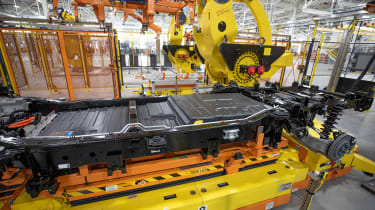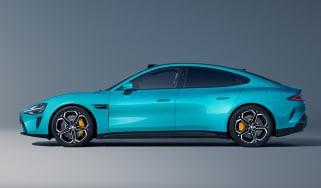Ford partners with Redwood Materials to invest in closed-loop battery cycle
The move to electrification has its own threats to sustainability, but Ford’s new partnership aims to close the loop
As the entire global car industry continues to forge ahead towards total electrification, there remains a key question mark over its actual long-term sustainability due to an extremely heavy reliance on resource-heavy batteries. To tackle this issue, Ford has partnered with Redwood Materials, a California-based technology company that aims to establish a recycling and end-of-life process for electric car batteries.
Managing this end-of-life phase for car batteries might not sound immediately important, but unlike combustion vehicles which are relatively resource-light, battery electric cars require much larger amounts of raw material per unit, most of which is virgin (or first use, directly from the ground) and often mined in ecologically vulnerable parts of the world.
When in use in tiny amounts for consumer electronics this isn’t so much an issue, but to electrify the tens of millions of cars on the roads around the globe presents a significant issue, both from an environmental perspective, and the battle for control over these resources.
This is where Redwood comes in, as it has begun work to close-loop the process of manufacturing and then recycling batteries, patenting a method of materials extraction from used batteries at a rate of 95 percent, almost entirely eliminating the need to source new material from the ground.
Ford’s partnership with Redwood is part of its own $30 billion investment in electrification, and aims to not only accelerate this recycling technology, but also close the loop as it, like most larger car manufacturing conglomerates, prepares to bring battery manufacturing in-house, both to control supply as well as reduce costs.
Lisa Drake, Ford’s North America chief operating officer said on this announcement: ‘...this approach will help ensure valuable materials in end-of-life products re-enter the supply chain and do not wind up in landfills, reducing our reliance on the existing commodities supply chain that will be quickly overwhelmed by industry demand.’
Of course for this system to work, there still needs to be exceptionally high amounts of raw materials like cobalt, lithium and copper in circulation. And to work at scale, the issue of battery ownership and logistics will still need to be resolved, but this partnership does at least suggest that Ford is at least mindful of this long-term threat to total electrification in the future that industry and governments don’t seem to have yet prioritised.








